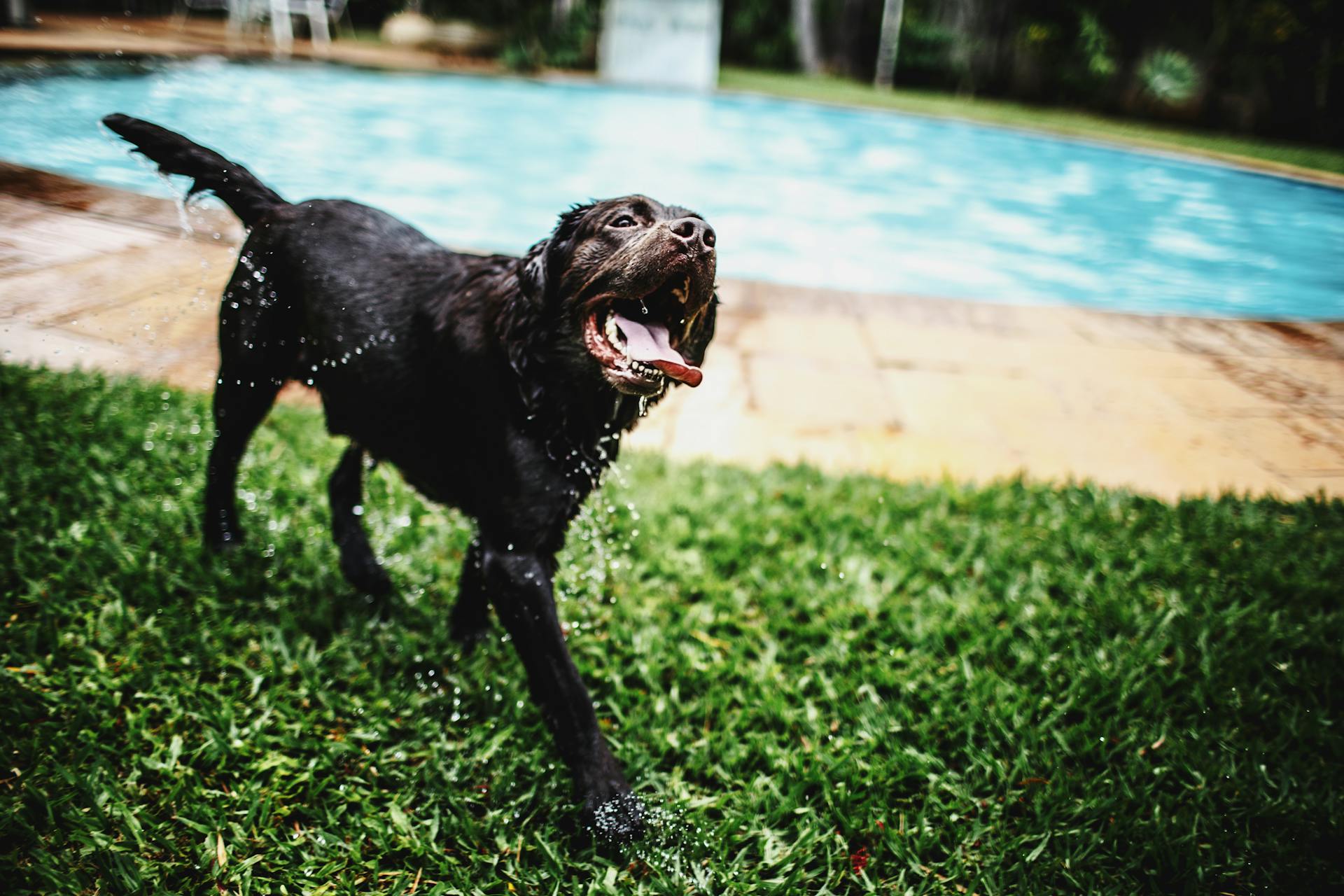Introduction
A barking puppy can be adorable at first, but when the barking becomes constant, it can quickly turn into a frustrating situation for both the household and the neighbors. Teaching your puppy to manage their barking is crucial for maintaining peace at home, and it can also help your pup learn to communicate in more appropriate ways.
This blog will guide you through expert techniques on how to train your puppy to stop barking using positive, force free methods.
Table of Contents
1. Understanding Why Puppies Bark

Before we work on helping puppies to stop unnecessarily barking we must first make sure we completely understand the reason why puppies and dogs bark.
Attention-Seeking:
This is incredibly common in breeds that love to get petted or prefer to be around company. Dogs that are highly social get bored and might bark to get your attention, this is also very common with puppies, puppies are like children and will often want to go outside to play or simply might require some pets. Thus barking and howling might be their way of signaling you.
Territorial Barking:
Puppies will often bark at intruders that invade their physical space and area that they consider their own. Dogs are generally territorial and many breeds have been specifically bred for hunting and guarding, greatly increasing these two defensive traits. When faced with new stimuli it is their general instinct to ward off the intruders by barking or using their barks to alert their owners that someone is trespassing.
Alarm Barking:
Alarm barking occurs when puppies or dogs are surprised or get scared. These barks are usually an indication of discomfort or fear. Sudden movements or loud noises like firecrackers may make these puppies bark out of fear.
Separation Anxiety:
As discussed in the previous sections, many different types of breeds may require different amounts of attention and love from their owners. Some breeds of puppies may prefer social company more than other breeds and might just bark out of separation anxiety, which is a feeling of stress felt by the dogs once their owners leave the house. This type of barking is also accompanied by other telltale signs like running around and stressful behavior.
Boredom and Frustration:
If puppies do not get the stimulation they require from playtime and walks, they might try to spend their energy by barking. This type of barking is mostly known as boredom barking. Where a puppy may just be barking to pass the time as he has an excess amount of energy left in him that he wants to spend.
Excitement:
Puppies bark when they get happy and are too excited. We must understand that dogs use barking as a way of communication, not every type of barking is a negative reaction. Some barking may also be a way of displaying affection to their owners.
2. Effective Training Techniques
Now that we understand why puppies bark, it’s time to implement training techniques that encourage calm, quiet behavior:
Force-Free Approach
Using a force-free approach means you focus on encouraging desired behaviors without using fear or punishment. Instead, you teach your puppy that being quiet is rewarding.
Positive Reinforcement
When your puppy is quiet, immediately reward them with treats or praise. This positive reinforcement encourages your puppy to associate quietness with good outcomes.
Redirect Attention
If your puppy starts barking, redirect their attention to an alternative activity, like a favorite toy or a puzzle feeder. This keeps them focused on something positive rather than the source of their barking.
Training Sessions
Structured, short training sessions are key to reducing barking. Practice commands like “quiet” or “calm,” and reward your puppy when they stop barking on command.
Auto-Behaviors
Teach your puppy auto-behaviors like sitting or lying down when they hear a doorbell or see a passerby. These behaviors naturally reduce barking and help your puppy feel more in control.
3. Managing Barking Triggers

- Desensitization to Stimuli: Puppies usually make noise and bark when exposed to specific triggers that trigger their mental stimuli. By recognizing and managing these specific triggers we can help reduce their urge to bark. The first step to desensitization is to gradually expose your puppy to the senses that might cause them to bark, for example some puppies may bark by hearing specific noises such as a bell or seeing strangers near your home. Through consistent socialization and exposure to triggering sounds in a gentle manner, the puppies will normalize these triggers and stop barking when exposed to such stimuli.
- Sight Barriers and Visual Blockers: There are some triggers that are visual in nature to your puppy, such as moving cars and people etc. Using sight barriers or keeping them unaware of these triggers can help in your house being silent and peaceful. Try keeping their dog houses away from windows or around some form of wall to limit their outside view.
- Safe Space Creation: Giving your puppy a safe space where they can feel secure and stress-free can help reduce the chances of stress related barking. This could mean keeping them in a confined dog house with proper toys and items to help them remain entertained or to create a type of environment inside the house where they feel completely safe and secure.
- White Noise: Puppies and dogs hear on a frequency that is different from human beings. There are many white noises that are not detectable to human ears that can easily irritate dogs and other animals, make sure to read up on all the material you can find about white noise machines and electronic items that may disrupt or irritate a dog.
4. Preventive Measures and Practical Tips
In addition to training, there are some preventive measures you can take to manage your puppy’s barking:
- Mental Stimulation : A bored puppy is a noisy puppy. Provide your dog with puzzle toys or interactive games to keep their mind engaged and reduce boredom-related barking.
- Physical Exercise: Regular physical activity is crucial. Puppies with excess energy are more likely to bark out of frustration, so make sure they get plenty of exercise throughout the day.
- Crate Training :Teaching your puppy to feel safe in their crate can help reduce barking caused by separation anxiety. The crate becomes their personal space where they feel secure.
- Bell Training for Outside: Consider teaching your puppy to ring a bell when they need to go outside. This can reduce barking at the door or when they need to go potty.
- Ignore Barking : Sometimes, barking is reinforced because we inadvertently reward it with attention. If your puppy is barking for attention, ignoring the barking and only rewarding them when they are quiet can help curb this behavior.
5. Desensitization Techniques for Long-Term Success
Gradual Exposure:
As discussed in the previous sections, slowly and gradually exposing your puppy to irritating stimuli in a gentle and decent manner can help them get accustomed to dealing with those specific triggers and can help create new methods of handling those triggers. By slowly increasing the magnitude of the triggers you can help completely negate their barking while witnessing these triggers.
Positive Reinforcement with Treats:
Positive reinforcement is a highly effective method to increase desirable behavior form your puppy. By rewarding your puppy’s good behavior by repeatedly giving them treats. They will gradually understand that the required behavior and mannerisms will lead to them getting treats and goodies thus significantly increasing their good behavior.
Consistency and Patience:
Training your puppy to be less noisy and reduce its barking can be a daunting and long task, but with patience comes reward, progress is not always linear and may take some significant time but the results will always come in sooner or later.
6. Real-Life Success Stories: How Other Pet Owners Managed Excessive Barking
Sometimes it helps to hear from others who’ve been through the same struggles. Here are a couple of success stories from pet owners who managed to train their puppies to stop excessive barking:
- Sarah’s Story: Sarah’s puppy, Max, would bark non-stop at every sound. After weeks of training with positive reinforcement and consistent desensitization, Max learned to stay calm even when the doorbell rang. Sarah credits her success to patience and using treats to reward quiet behavior.
- Tom’s Experience: Tom used crate training and mental stimulation techniques to help his pup, Luna, stop barking out of boredom. By giving Luna puzzle toys and regular exercise, her barking significantly reduced, and Tom found her much calmer at home.
These stories highlight the importance of using positive methods and sticking with a training plan for the best results.
Conclusion
Training your puppy to stop barking takes time, patience, and consistency, but with the right techniques, it’s absolutely possible. Start by understanding why your puppy barks and use positive reinforcement to encourage calm behavior.
Managing barking triggers and preventing frustration with mental and physical stimulation can go a long way toward creating a quieter, happier household. If you stay patient and stick to your training plan, both you and your puppy will enjoy a more peaceful home.
FAQs
How long does it take to train a puppy to stop barking?
Training times vary based on your puppy’s temperament, consistency in training, and their specific triggers. Some puppies may show improvement within a few weeks, while others may take longer.
What should I do if my puppy keeps barking when left alone?
Puppies that bark due to separation anxiety may need gradual desensitization and crate training to feel more secure when alone. Providing mental stimulation before leaving them alone can also help.
Is it okay to yell at my puppy to stop barking?
Yelling can actually reinforce the barking behavior by giving your puppy attention, even if it’s negative. Instead, use positive reinforcement to reward quiet behavior.
Can all puppies be trained to stop barking?
Most puppies can learn to reduce excessive barking with consistent training and patience. However, some breeds are more prone to barking, and it’s important to set realistic expectations.
Are there any tools that can help with training?
Tools like clickers, puzzle toys, and white noise machines can be helpful in training your puppy to stop barking by redirecting their focus or masking triggering noises.




